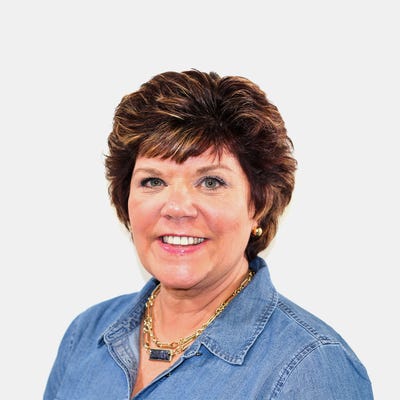1-on-1 With Procter & Gamble Chief Sustainability Officer Virginie Helias1-on-1 With Procter & Gamble Chief Sustainability Officer Virginie Helias
Global CPG powerhouse's first sustainability head talks about innovation with the environment in mind. Helias' mission is to embed sustainability into the innovation, brand building and everyday practices across the global CPG powerhouse.
October 15, 2019

Virginie Helias is the first chief sustainability officer of Procter & Gamble (P&G). Her mission is to embed sustainability into the innovation, brand building and everyday practices across the global CPG powerhouse.
Meg Major: Welcome, Virginie. Let’s begin with a brief discussion about the renewed importance of sustainability in the grocery business. What, in your opinion, is different now versus when sustainability went from something nice to have for trading partners to a strategic imperative for brand and retail leaders?
Virginie Helias: We clearly have seen a shift in all stakeholder expectations. Nine of 10 consumers now say that they have a more positive image of a company when it supports a social or environmental cause, and half say they make purchase decisions based on a shared belief with the brand. The landscape has permanently changed. I see this internally as well—how our leaders now look at it, which is very different from [only] eight years ago. It’s not a voluntary movement anymore; it’s totally integrated in brand strategies and in the consumer experience.
What inspires and drives you most about your life’s work as a sustainability specialist?
I don’t consider myself as a specialist. I joined P&G 31 years ago in a marketing role and that’s what I’d done for 23 years. I basically stumbled into the space of sustainability when I was leading our detergent business in the early 2000s. The business of detergent was not doing well. The brand Ariel had been down for three consecutive years, so I had to find new ideas to revitalize the business. I tested many, and the one at the top was Ariel cleans so well that you can wash your clothes in low temperature. This was a time where the price of electricity was going through the roof and it was a home run. It was also at the time when Al Gore launched the movie “An Inconvenient Truth.” At that time I learned that with detergents, 80% of the [carbon] footprint comes from the temperature of the washing machine. So the best commercial initiative that I had [professionally] launched was at the same time the best thing that I could have done for the environment.
Please discuss the significance of P&G’s stated responsibility to make the world better through its products and through the positive impact it can have in communities worldwide.
It is embodied in our Brand 2030 initiative, which we launched at Sustainable Brands Paris. [It] is the criteria against which we now hold our brands accountable to deliver against with five things: We are asking our brand leaders to define their ambition, which is a social/environmental commitment that needs to be measurable and which must be brought to life with tangible actions and commitments. It also calls for our brand leaders to innovate on product and packaging to drive responsible consumption and to leverage their voice to promote sustainable behavior. The next requirement of Brand 2030 is a commitment to ingredient transparency, while another is to reduce the environmental impact across the entire supply chain—from responsible sourcing of material to making sure that our plants are conserving energy, water and recycling waste.
Another big part of P&G’s transformational journey is the new Closed Loop Home, which seems like an extremely cool solution, albeit perhaps a little ahead of its time. Please discuss.
Our inspiration came from Cape Town, South Africa, which had a major drought two years ago—almost to the point where they called for days where residents could use no tap water whatsoever. They barely avoided it from happening because the government imposed a very strict measure that limited the consumption of water to 50 liters per person per day, which means a one-minute shower per day, one toilet flush, and one laundry load for the whole week. This 50 liters compares roughly with 500 liters per person per day that many Americans are using. So that was our inspiration to develop innovations that are very water efficient, such as Cascade Platinum, which allows you to actually skip the rinse cycle, saving up to 20 gallons of water per load, and avoid needing to prerinse dishes before putting them in the dishwasher.
Lightning Round
What’s something cool that you can tell us about a sustainability tip?
If you wash with Tide in a cold and quick cycle for a year, you can save enough water and energy to power your cellphone for a lifetime.
If you had to identify one thing you’re most excited about, what would that be?
It’s like asking a mom which child they prefer, but I think we can drive huge impact through Loop. The idea of getting rid of disposable packages and replacing them with beautiful durable, refillable packaging is a huge idea, and we are very committed to making it work.
What ways beyond the obvious do you believe social or environmental innovation can help grocery businesses?
Innovation drives value. Period. And sustainable innovation is no different.
About the Author
You May Also Like






